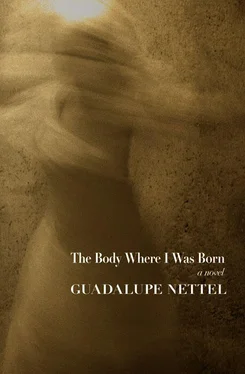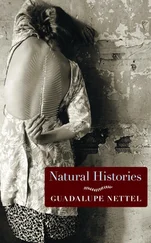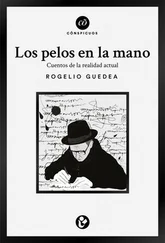Our dog Betty was not happy in Mexico City. Her story reminded me of Heidi’s, the little girl from the Swiss Alps, who after having grown up in the country free to chase badgers and to run around as she pleased was forced to live cooped up in the city of Frankfurt. Despite how happy Betty was to see us again, she was thin and her doggy face wore an expression of resentment. Even though we visited her every morning, it wasn’t enough to keep her spirits up. Normally we would have taken her out for a walk twice a day like any other dog, but we weren’t allowed out by ourselves. My grandmother argued that bringing a German sheperd down the metal stairs from the roof to the house, then down the back stairs to get to the street, was not only a hassle but torture for the dog. It’s true that Betty’s body was too big, but she was also gutsy. At night we’d often hear her howling in sadness and boredom from the cement surface, where the only things to look at were a neighbor’s garden and the constant flow on the arterial road below. We were told to tether her because she had already tried to escape by jumping from roof to roof for an entire block until she found a service staircase. Betty’s attitude made great sense to me and was, at least according to my grandmother, where our resemblance was greatest.
Shortly after hearing this story, and after my first visit to jail, I climbed to the roof and untied Betty. She didn’t waste her opportunity. She immediately ran away and was missing for over a week. Seven days of remorse passed in which I confessed my responsibility to no one. Finally, one morning we found her sitting in front of the house. She was waiting for us to let her in. The vet came to make sure she hadn’t caught mange or anything of the like during her jailbreak, but the only thing our dog had gotten was irrefutably pregnant.
After that summer we returned to Aix. The heat in France was still at its peak, making it impossible to sleep under a sheet at night. I was back in the same school and entering the 5ème , which in Mexico would have been the second year of middle school, or seventh grade. That year, in filling out the registration form, my mother told us that our father’s professional occupation corresponded to the word “psychoanalyst.” “Prisoner” wasn’t a job, to begin with, and besides, it would have aroused all kinds of unfounded suspicions. What would we do if we were assigned to a social worker, “one of those witches,” as my mother called them, for a psychological evaluation? One had to think of everything. Although she never openly admitted it, I think Mom was scared, and rightfully so, that we wouldn’t pass such an exam.
In the 5ème , I was still a withdrawn girl, borderline antisocial, but in my homeroom there appeared an individual similar to me in temperament and interests, and with whom, oddly enough, I immediately hit it off. His name was Blaise. He was blond and pretty short. Until this year — and since time immemorial — the boys had been shorter than the girls. But now, beginning with the grade above us, most of them were showing noticeable changes: upper lips started to cover in a dark fuzz; voices, once tinged with strange and incontrollable modulations, stabilized; and limbs, along with backs, in many cases took on more bulk. That’s why many of the girls my age arranged themselves at recess at strategic points in the yard from which they could watch the rugby or handball games whenever the competitors were the boys from the 3ème and 4ème (grades in France go down, not up). Those who made the biggest fuss over testosterone were the Reunionese Kathy and her friend Mireille, originally of Pontoise, whose skin, milky and covered in acne, made her look like one of those cheeses that have been aged too long and grown bulgy. Her blue eyes were the only truly human element in the shifting surface of her face. Both girls fervently admired the male gender of almost every generation, including the professors and other students’ fathers. Into their textbooks they would often slip gossip magazines targeted at girls our age that published advice on how to use makeup and weild accessories. I had a good relationship with them but not a close one. Sometimes, when class was particularly boring, or when I looked nervous about an exercise on the blackboard in algebra class, they would see to it that one of these magazines was passed from hand to hand to land on my desk. I remember in particular one notable article that discussed the right way to practice kissing with tongue, which in French we called “rolling a shovel.” The author advised practicing solo for a while with half a squeezed orange in order to develop the necessary dexterity and sensitivity in the lips. However, for the real thing, you couldn’t forget to stick your tongue out far enough to meet his tongue, but not so far that it would be uncomfortable for him. At that moment you would begin the spinning that in a French kiss seemed to be at the heart of the matter. It was important to find synchrony in spinning with his tongue, to strike the same speed, and to hit reverse. I remember that when I finished the article I lifted my head and looked at the entire class pretending to be absorbed in the equation. I looked at my classmates, trying to figure out how many of them, and especially who , had already been through this critical and defining ritual. It needs to be said that, had I done a survey, most of them would have lied; at that age, it was mortifying to confess a lack of experience. The words pucelle and puceau , which both referred to someone who was still a virgin, were the worst insults you could receive at my school. You could be a top pucelle or bottom pucelle : “top” meant you’d never kissed and “bottom” meant you’d never slept with anyone. Most of the girls, with the exception of the boldest, preferred to assign themselves to the latter category, almost none to the former, and never to both unless your family was extremely religious. Despite her deformed face, I was sure that Mireille had already kissed several boys. You saw it in the confidence she had talking to older boys, the very confidence the rest of us lacked; it was like she knew them inside and out. Kathy, for her part, was one of the sexiest girls in the whole school and there were rumors that for a few months she’d been dating a boy in the 4ème , but from a different school. There was also Ahmed, a boy from Algiers who had been held back two years and ended up in our class, and who pursued my classmates like a rooster in a henhouse. Except for these three experts, it was hard to guess if anyone else had any significant experience with the opposite sex. To me, the idea alone was equal parts enticing and repulsive. I was dying to be in the arms of one of those 4ème guys and to kiss like I was eating an orange in the sun, but the whole business with the tongue and spit, and the fragility and the exposure in the moment bordered on unbearable.
Blaise was not one of the boys who were all muscle, not at all. I didn’t like him in the least and it was clear that he felt something similar toward me. I guess that’s what made us close. Some swear that genuine friendship between men and women doesn’t exist. I’d like to know your opinion, Doctor, because it’s a notion I completely disagree with. Throughout my life I’ve succeeded in establishing a strong complicity with some men, almost as strong as what I now have with my best female friends. Blaise’s presence that year meant a way out of solipsism. By October, we were sitting together for almost every subject. We also sought each other out in the free time between lunch and class. Recess, however, I spent alone, walking from one end of the playground to the other, greeting the kids I knew but never feeling good enough with any group to stick with them for more than five minutes. I remember that on one of these restless mornings, Cello, the older boy with whom I shared my lunch table, came up to me out of nowhere oozing friendliness. After making small talk for a few minutes, he told me he had a confession: Sebastien, his best friend, wanted to meet me and had asked Cello to make it happen. The recess bell cut short what he was saying.
Читать дальше












